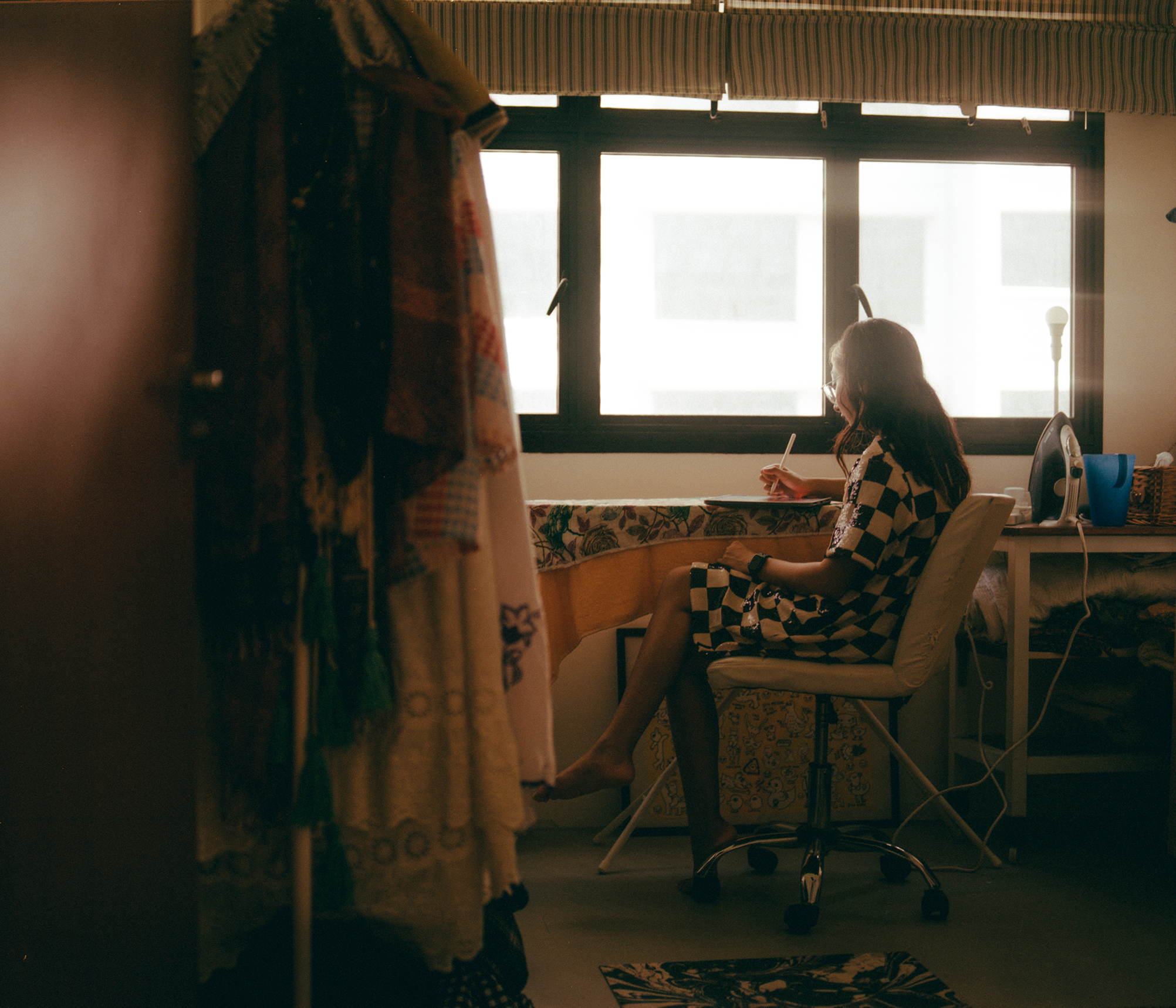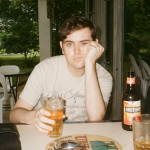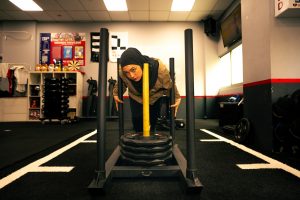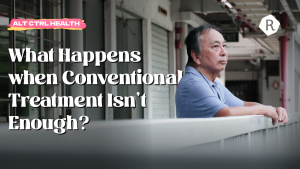The discordant state of the world has intensified a global rise in distress over mental health among youth — a direct ramification from a period of constant flux. Transitions are tough for sure, but how do we learn to ride the wave of immense change and loneliness?
In collaboration with CHAT, Thriving in Transition is a series dealing with how we make meaning of our individual experiences and emotions through finding solace in the support of others, no matter how daunting it can be to reach out.
All photographs by Zac Tan for RICE Media.
What if there was a life-changing prize at the bottom of the well of loneliness?
Well, perhaps there is.
Loneliness, as a phenomenon, holds a bad reputation. It’s been linked to a shorter life span, mental health issues, and low productivity. But what if we’re not considering the full picture? Our spiritual and cultural keystones—films, literature, and music—are often born out of isolation.
This has never been clearer than during the pandemic. We’re alienated; from ourselves, each other, and the communities that offer us a sense of belonging. Ironically, in 2022 it’s the isolation that binds us together. Posting a COVID-positive test on your Instagram stories. Lamenting the ‘stuck’ feeling of working from home with your colleagues on a rare day in the office. Reminiscing on nights out dancing until the wee hours over coffee with old friends.
What if solitude isn’t all bad? The experience of feeling alone doesn’t always have to be hopeless.
Beyond good or bad—loneliness is a human experience
Like other pivotal human experiences (love, grief, ambition) loneliness is not innately good or bad. It’s an emotional state we all endure. Of course, there’s a spectrum to it. A widower’s emotional isolation will feel different than moving to a new city and struggling to make friends.
But what can we learn from these similar experiences which differ in intensity? Jack Fong, an American sociologist, has worked on reframing loneliness to emphasise the virtue of solitude. He argues there’s nothing to be afraid of at the trough of loneliness.
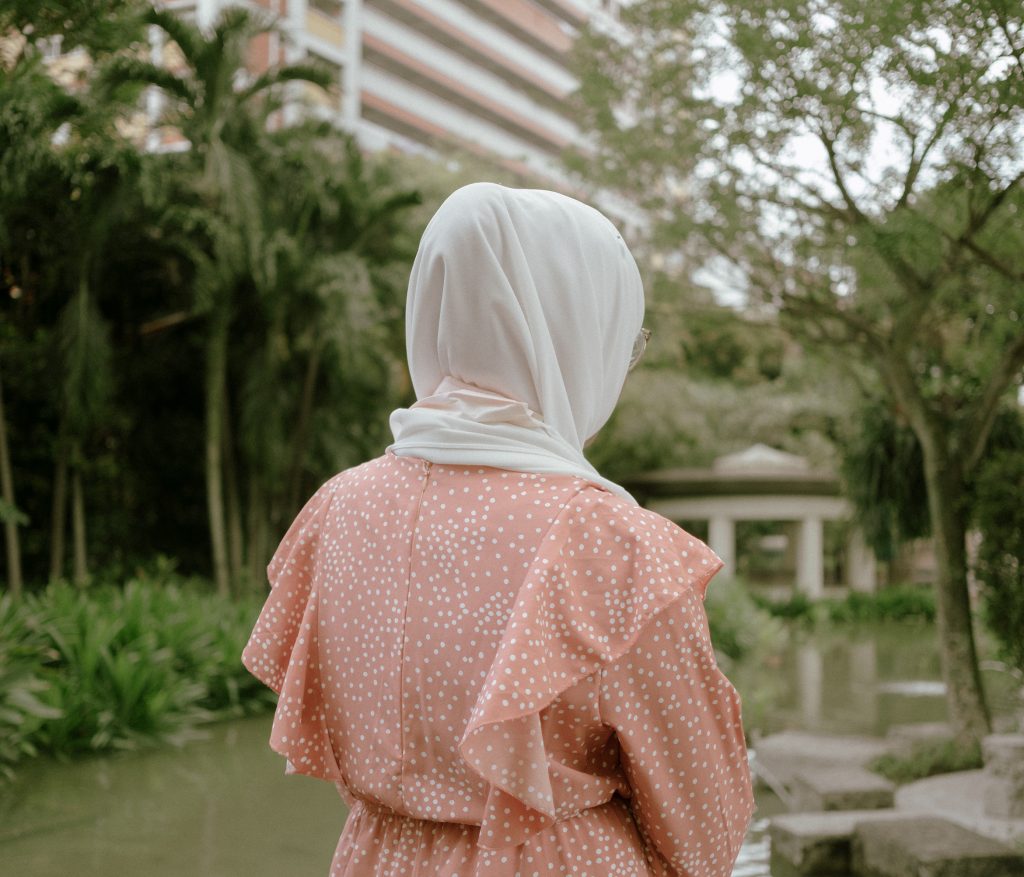
Fong asserts that loneliness stems from the existential dilemma: where and how can we find meaning in life? After a series of screw-ups or a period of feeling disconnected, it can be hard to ‘follow’ a set path. Here, we’re confronted by the inherent meaningless in life. We learn that life is a sequence of random events. This stark moment is where self-knowledge and resilience come from. We learn that meaning is a gift we give to ourselves.
A Way To Do Some Internal Work
Like most things that are good for you—for example, exercise—working through loneliness, or an existential dilemma can be uncomfortable. I view ‘internal work’ like marathon training. The first day is the hardest. After that, it gets easier.
Here’s one example of ‘internal work’: getting to know your shadow self. Swiss psychiatrist Carl Jung coined the term to describe the behaviours, emotions, and thoughts that we’d rather not have or we’ve been taught to reject. Maybe you have a quick temper, project onto others, or harbour unacknowledged prejudices.
These impulses are normal. We all have them. But usually, we shove them down. Jung argues this darkens the shadow self and has serious implications of unhappiness down the line.
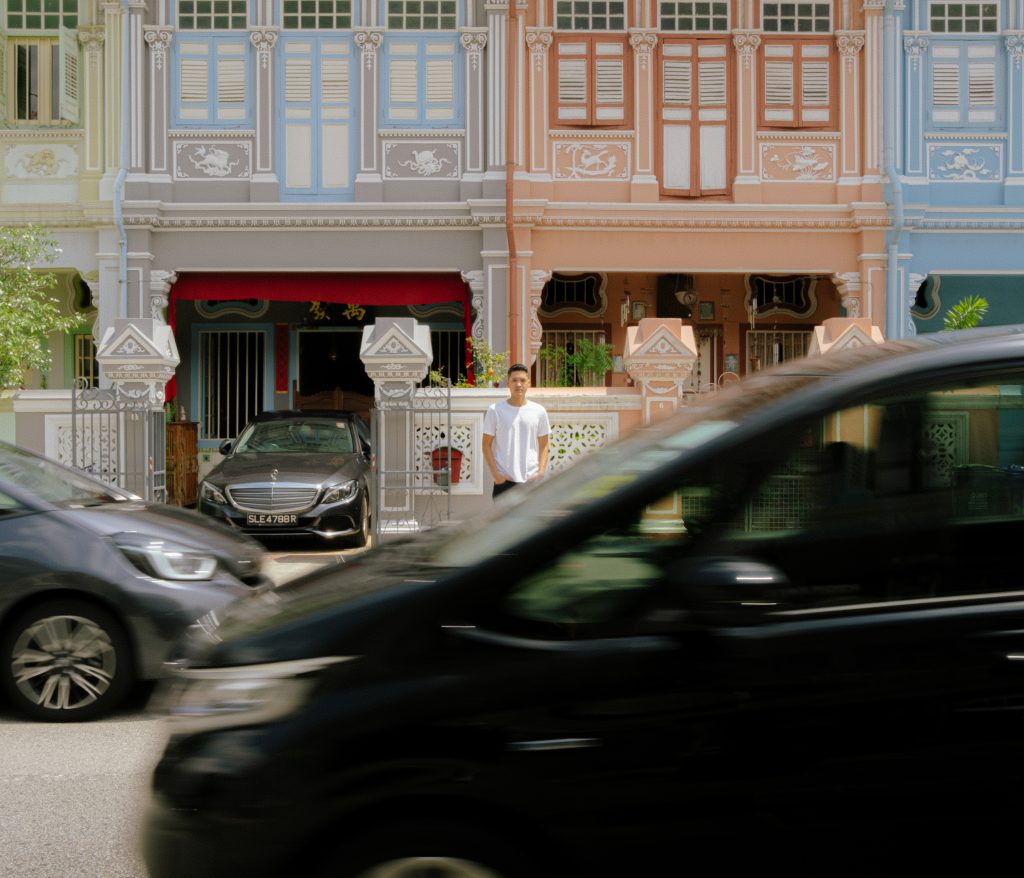
Jung’s work is more extensive than what’s written here. But the goal of shadow work can be applied to any kind of isolating experience, it’s about getting to know your real self. In low moments, as questions—how much of this can I bear? Why does it feel so intolerable? What can I learn or change from this experience?
The goal of shadow work isn’t to repress your loneliness, or even to conquer it—rather, one traces the roots in their experience of discomfort. It’s a form of self-reflection, and ultimately, these exercises build on the self-knowledge and resilience that can be tapped in solitude.
How does it feel to be lonely in Singapore?
After a period of enforced solitude, it remains to be seen whether we’ve collectively built upon our self-knowledge and resilience. The past few years have been rough for Singaporeans. Like the rest of the world, we’re dealing with the volatility of the virus—but we’re also enduring tighter restrictions than most for an extended period. Was it possible to foster resilience in the harshest of circumstances?
We reached out to four Singaporeans who recently dealt with the human experience of loneliness, solitude, and isolation in the pandemic and beyond. Here are their journeys, in their own words.
The Nervous Expat Mum
Alice, 29
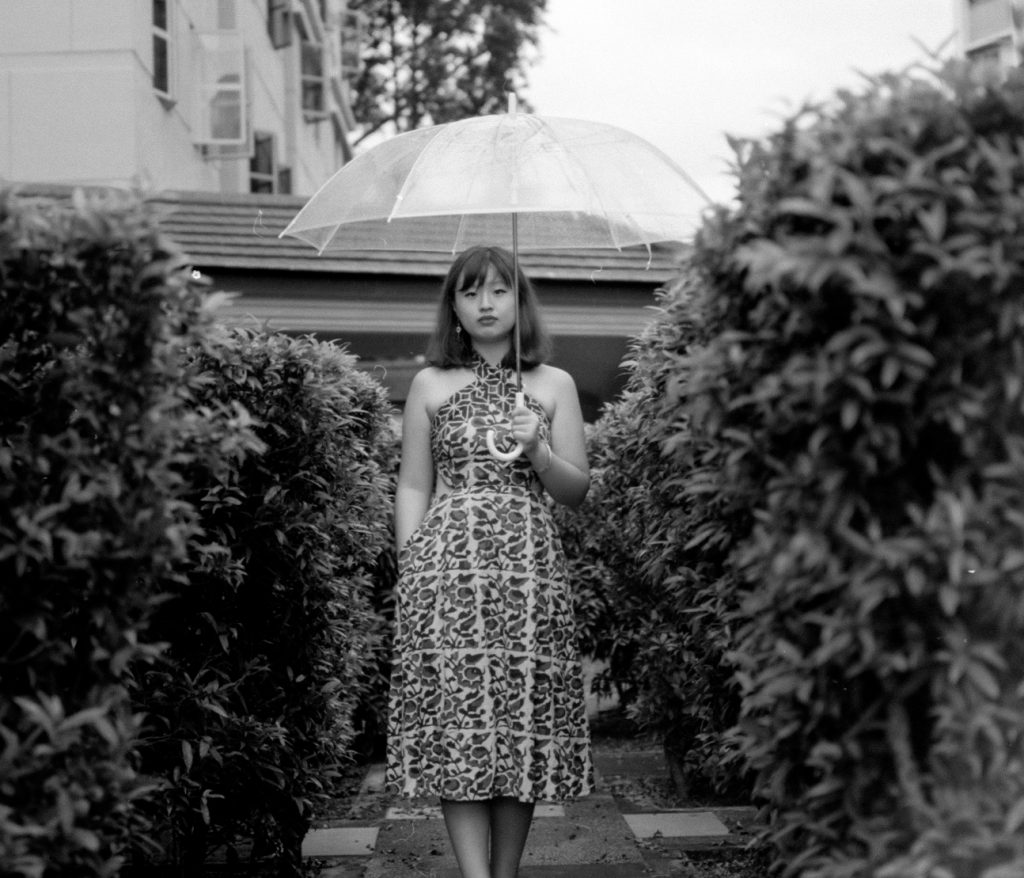
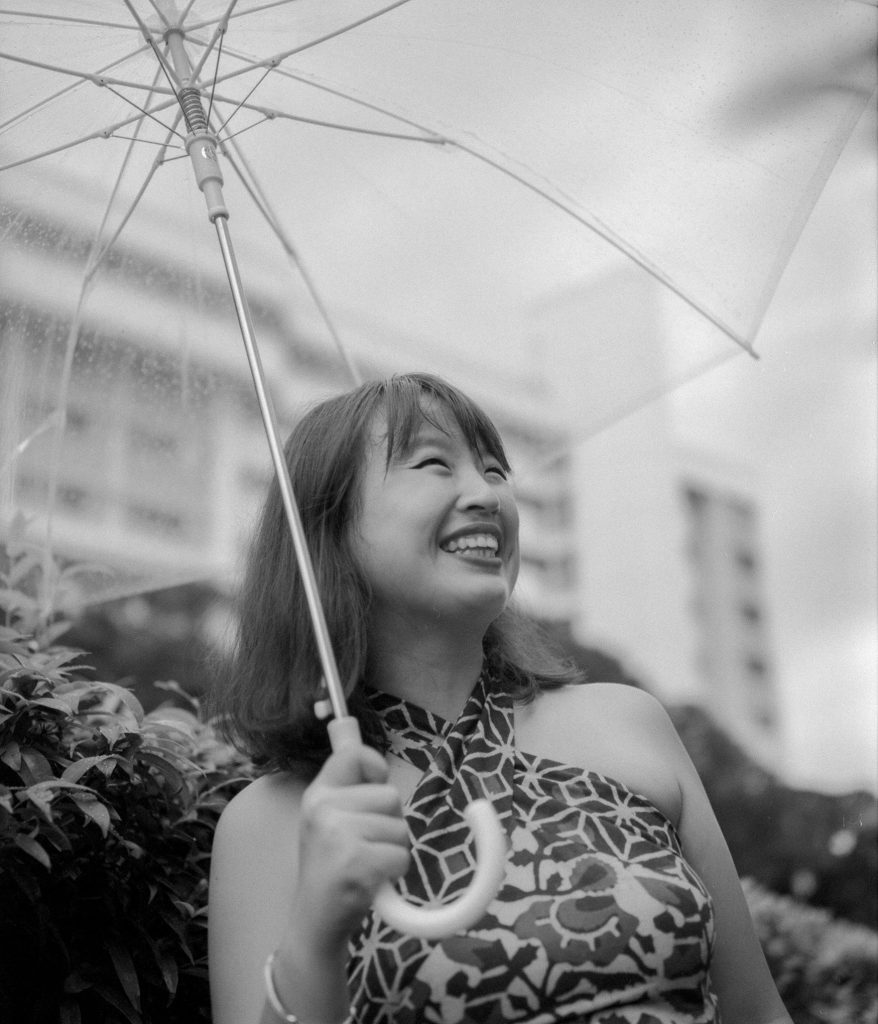
“I came from China to Singapore a few years ago to study. Unfortunately, we had to leave our whole extended family behind. I was managing okay until I got pregnant. It was supposed to be such a joyful, loving period of time—but I found myself feeling really distressed. Because I hadn’t built a robust network of friends here in Singapore, there was no one to turn to with my pregnancy-related questions. Who is the best gynaecologist? How do I go about finding a confinement nanny?
I wouldn’t have thought twice about these things back home, but the unknowns in pregnancy stacked up into a pile of worry in my mind. Of course, it didn’t help that I was also working in a start-up environment with lots of uncertainties. I worried a lot if I could take my maternity leave and get paid in time. On top of the homesickness and the worry, there was this practical anxiety as well. I kept thinking, how can one person bear all of this at once?
I felt low and I cried a lot, and in that process, I just shut down. I didn’t know how to pull myself out of the rut. Thankfully, my husband saw that I was hurting, and he turned me to an old love of mine: art. He handed me a set of pencils and a sketchpad and told me to get back to my doodling.
Before I got pregnant, I drew Singaporean life in cute animal characters for the Zao Bao Comma. After I started working full time, I kind of placed this habit to the side. Putting pencil to paper again relit that fire inside of me. It was the gateway to getting better overall, actually. Through art, I found this community of mums who share their experiences and tips with one another. It was such a blessing to have somewhere to go for advice.
I turned my little doodles into a children’s picture book, and I couldn’t believe it when the National Library asked to keep some copies in stock. It’s an amazing feeling that this product of my isolation and deepest sadness is a source of happiness to others. To keep this momentum going and to share the therapeutic nature of art, I created a nonprofit organisation called Mama On Palette to combat prenatal depression with creativity.”
The Recent Grad Who Found Her Calling
Laili, 24
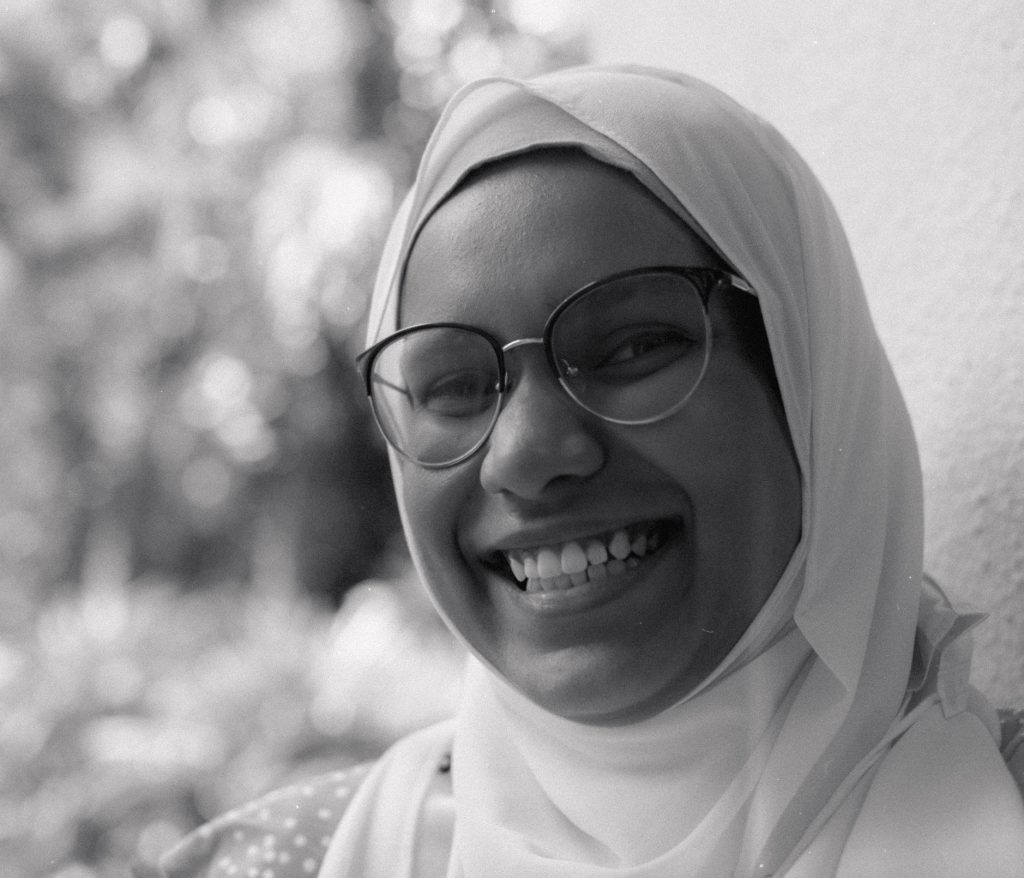
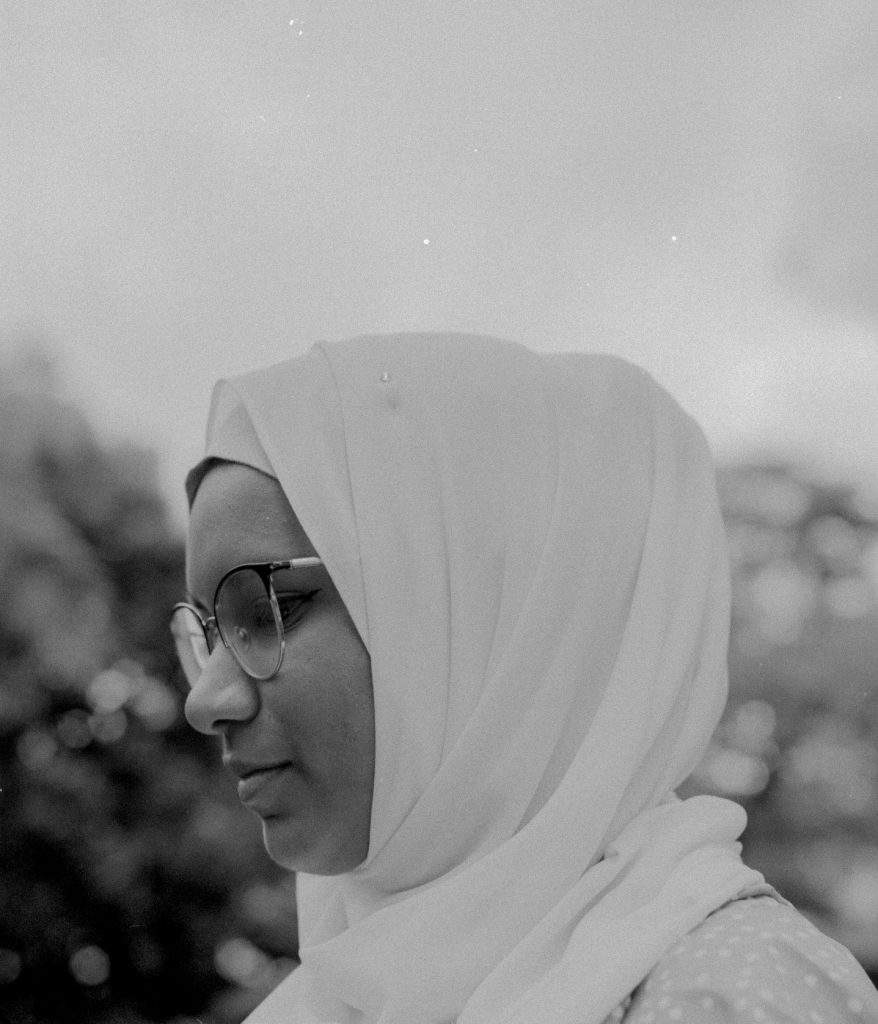
“I never realised how important time management and work-life balance were until I got my first job. In the virtual office, I felt like the line between my professional and personal self became so blurry that there’s this pressure to always be ‘on.’ Forging connections with my colleagues became a real challenge too because virtual work removes the chance to have casual interactions where you can get to know someone on a personal level.
I’m kind of a worrier so I’m always second-guessing myself. Plus, I never want to bother people, so just sending them a message by text felt like I was troubling them unnecessarily. Naturally, this alienating feeling made me disconnected from my work and the office. Somewhere along the line, I lost sight of what to prioritise and how to keep healthy habits while working from home. I lacked routine.
Eventually, my perfectionism collided with the busyness of my work, and I just burned out. Before I started working full-time, I spent a lot of time reading to de-stress. It’s kind of the anchor in my life—this passion I have for analysing literature. As an only child, I’ve always used escapism as a way to distract myself from anything negative: stress, boredom, worry, etc.
Anyway, because I was so occupied with work and unable to switch off, I just didn’t read any books. This took a greater toll on me than I could have ever imagined, and all aspects of my life were suffering. I just started overthinking every little interaction at work, and stressing about my personal relationships outside of work as well. I’ve never felt more alone than I did then… and this wasn’t even that long ago.
Now, I’m still struggling with overthinking but I’m managing. Getting to that extreme low and climbing out of it through reading and escapism showed me that I need to spend my time indulging in what I love. It’s the only way I can feel happy with myself. So, I’ve made the decision to leave the industry I’m in right now and go back to school to pursue literature full time, hopefully later this year.”
Psychology School Drop-Out
Viaano, 25
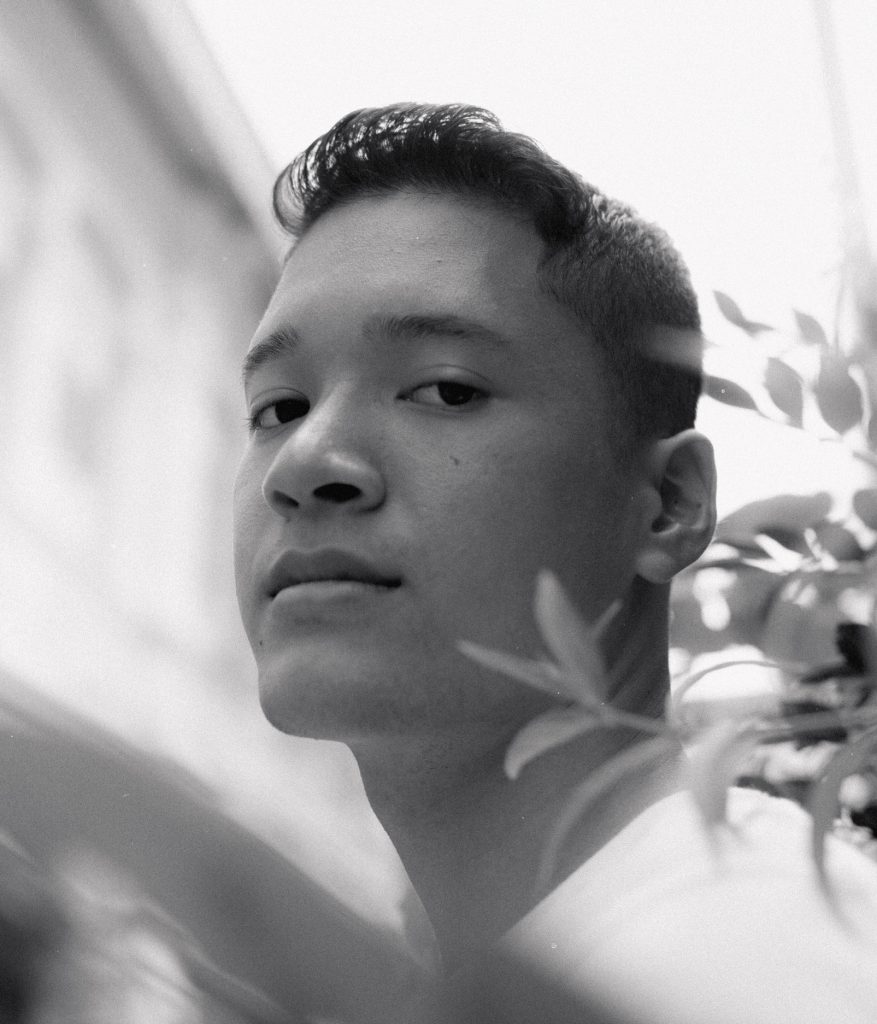
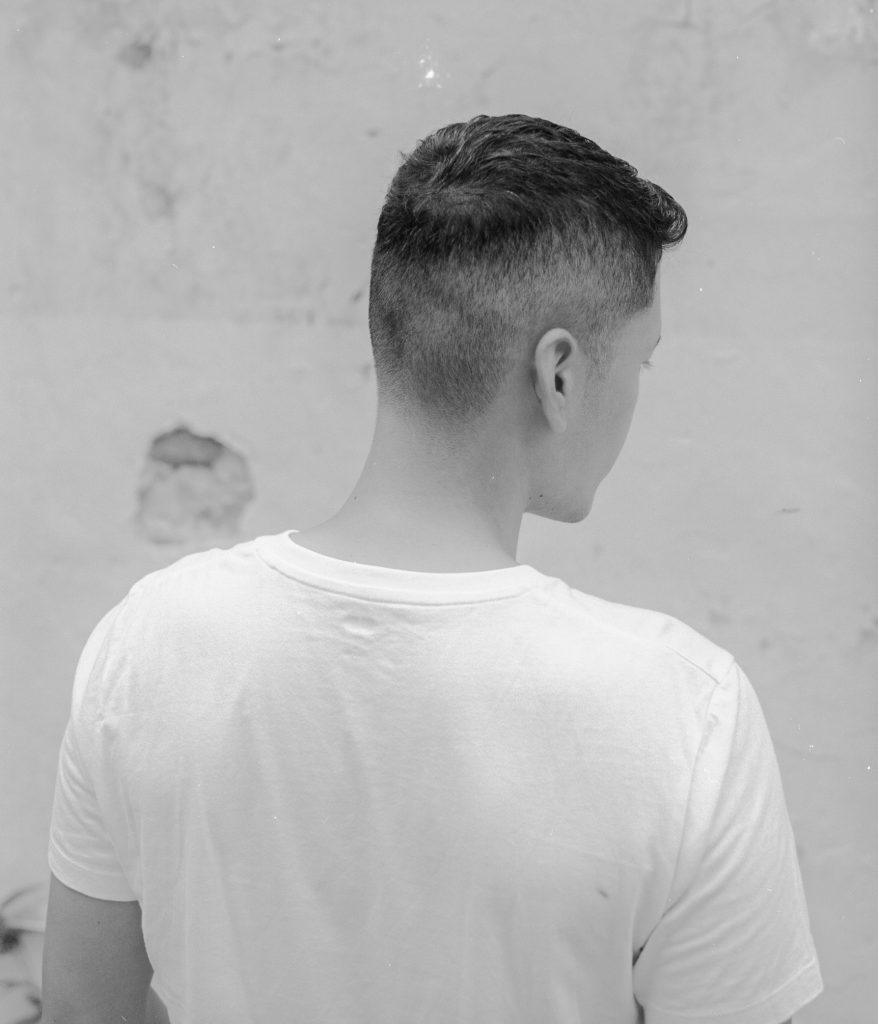
“I’m intimately familiar with isolation, as I’ve always felt like the odd one out from a young age, with unsteady mental health due to severe anxiety. In general, I think Singaporeans are quite conservative and suspicious of mental health issues, like there’s some sort of don’t-ask-don’t-tell policy. Certainly, there’s a stigma against getting professional help for mental turbulence.
At 18, I plucked up the courage to see a professional to try and conquer my anxiety. At that point, it was affecting me badly, and I couldn’t find a way out of this spiral. To be frank, the professional I encountered treated me quite badly, he turned me away because my ‘story’ wasn’t viewed as serious enough.
On top of that, I went alone because my parents weren’t entirely supportive—and they rejected me for that same reason too. It definitely felt like I was suffering unnecessarily, especially in hindsight, when I know now what a difference the right professional help can make.
A real turning point for me was an internship that had me working with mental health patients. I always heard mental health patients were unstable and untrustworthy, but these people were some of the loveliest and most genuine I had ever met. It was the opposite of what I had been taught to expect. These relationships broke down the stigma of mental illness in front of my eyes, and I felt so angry that the general awareness about these issues is so low in Singapore.
If I had access to the right care when I was younger I could have been spared a whole lot of heartache and loneliness. But this angst inspired me to effect change in my own way. During NS, I spent every weekend brainstorming how I could help destigmatize mental health issues for young Singaporeans. I started a group chat on Telegram where my peers could talk anonymously about their struggles. It moved to Discord and then it really took off during COVID-19.
Recently, I took the plunge and followed my passion, dropping out of my psychology degree program to build this platform into a reliable resource called Huddlehumans. The conversations I’ve been able to moderate and participate in have been truly amazing. Sometimes a listening ear is all it takes. I guess I was all alone at the beginning of my journey, but now, I feel connected.”
The Artist Who Drew Her Own Path
Natasha, 27
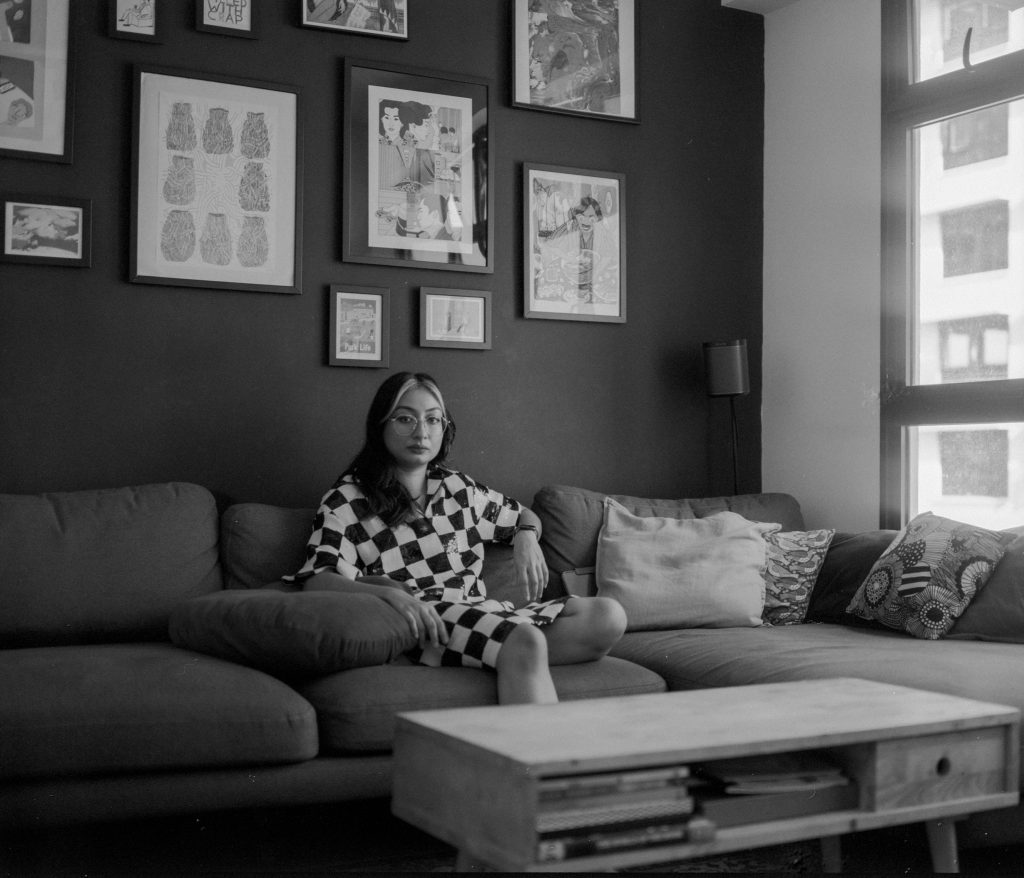
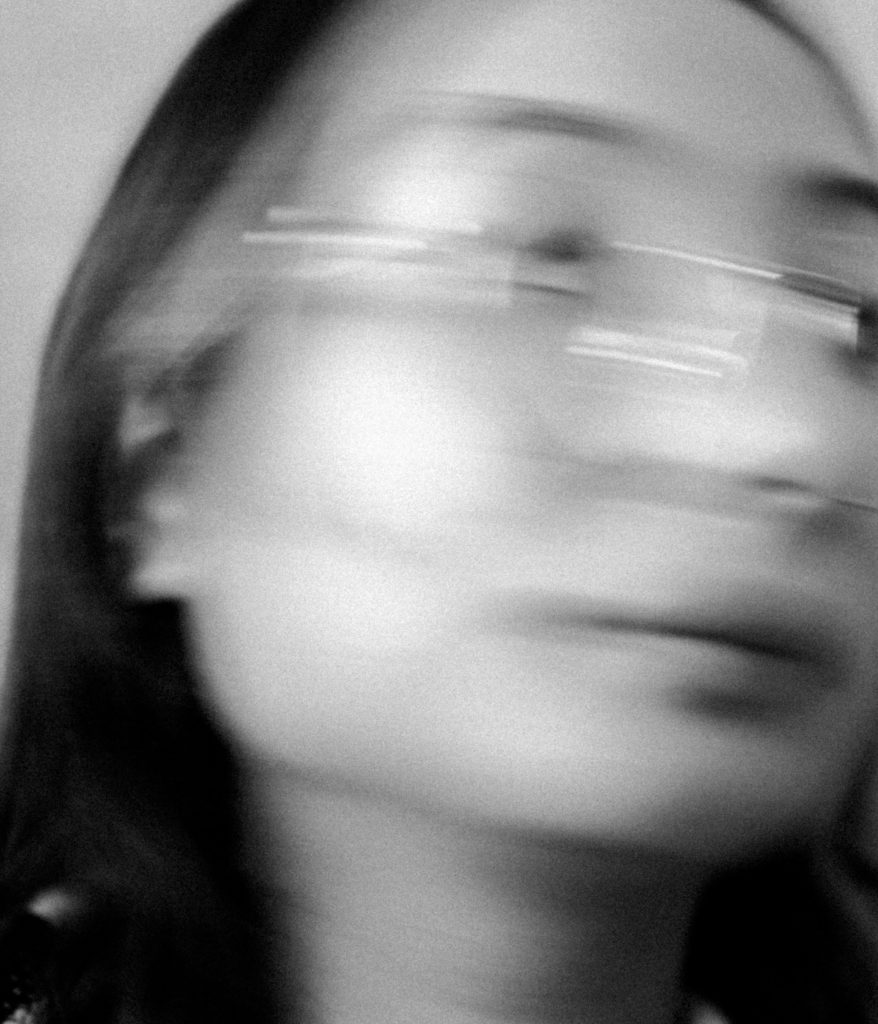
“I have a very harsh inner critic, any creative person knows what that feels like. It’s that judgmental voice in your head that stops you from creating before you even get started. But there’s often an external factor that influences a harsh inner critic, right? I’ve definitely encountered that in Singapore—the creative industries are cliquish and mostly Chinese. So, there weren’t many visible role models for me.
In general, I’ve always felt like an outsider in Singapore. It’s a very lonely feeling, almost like being left out of a friend group or something. This ‘otherness’ followed me to work as well because success in the arts is often gatekept. It’s about who you know, rather than what you do, though the work is important too.
I often feel dismissed when trying to access these spaces. I remember a moment when I felt particularly down—it was right before the pandemic when I graduated, and I was desperate to break onto the scene. My mind was just zipping at a million miles an hour and I couldn’t stop second-guessing what I was creating.
However, I found some silence in the pandemic. At first, I was paralysed by the newfound free time, but ultimately, I tapped into this inward space that helped change my perspective. Even though it often feels unfair, no one’s going to take my hand and guide me through it. I realised that I had to build my foundations and make my own connections to get where I wanted. So I took charge of my creativity and learned to code to pad out my skill set.
I wasn’t afraid to fail when I started learning how to code. I tried my best to silence my inner critic, and eventually, I created a series of artwork using that skill. I’ve been getting good feedback on it and I’ve sold quite a few prints. But I’m most proud of my other lockdown creation, Archipelagirl, an online zine I co-founded that creates space for Black and Brown stories and voices in Singapore. It’s received a lot of support, and I’m grateful that people around me are feeling the same way, and are supporting this project.”
Peaks and Valleys
Life has peaks and valleys. We know how to cheer on top of the mountain. As a society, we can get more comfortable with the descent. We’ll inevitably face challenges—periods of low mood, loneliness, isolation, and disconnection. That insecurity is a natural, normal experience.
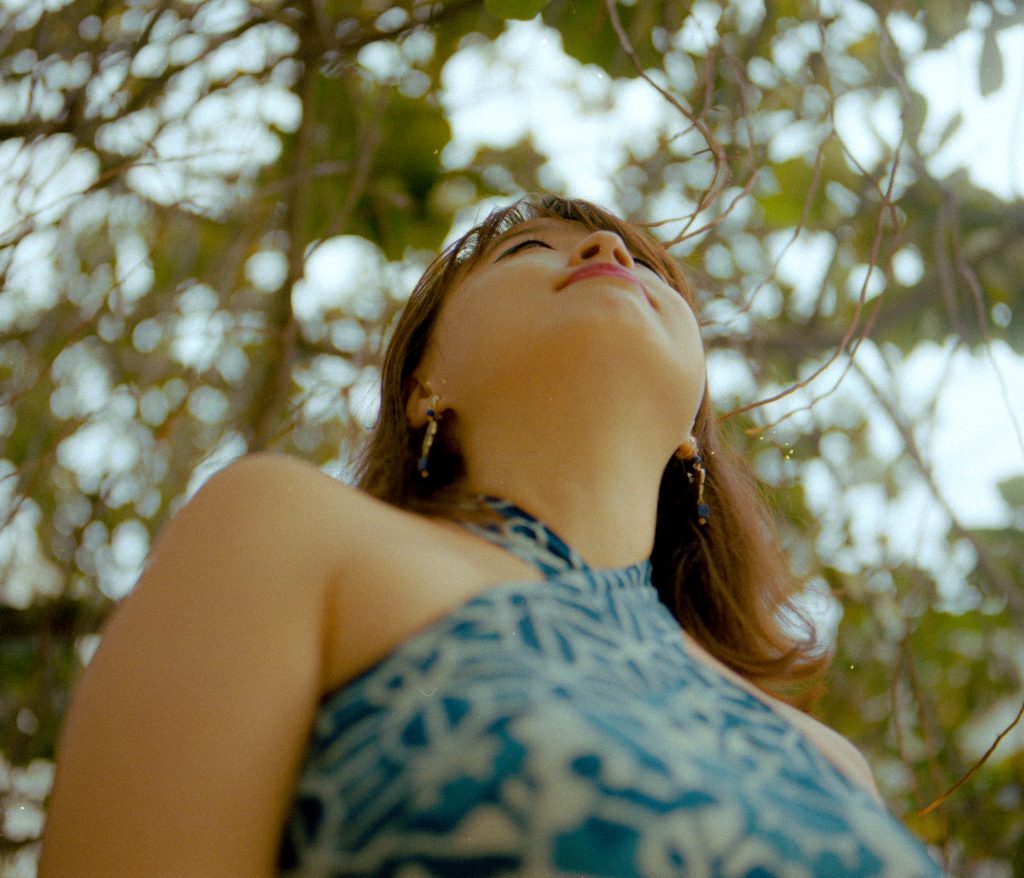
What we can glean from these diverse profiles: despite their varying circumstances, all of these Singaporeans have developed a rich inner world. It’s that deep imagination and commitment to riding out their discomfort which pulled them through. Interestingly, most of them leaned on some form of creativity to regain that zest for life.
The creative thread is something I resonated with while writing this article—imagination as an escape; art as a lifeline. Though I know some find the urge to be ‘productive’ antagonising, it’s a real comfort for me to ‘accomplish’ something as a commitment to myself. Setting realistic, and achievable creative goals is my resilience. It’s how I create meaning.
But the most important learning I took from this experience is knowing that when the well runs dry, there’s no need to make some dramatic change to get out. Loneliness isn’t a skill to sharpen or get better at. It’s simply an opportunity for us to pull back and learn more about ourselves.
Growth looks different on everyone, every quarter inch counts. And there’s always a community waiting to hear about your experience at the very bottom with open arms.
This article was brought to you by CHAT, the national outreach and youth mental health check program under the Institute of Mental Health.


